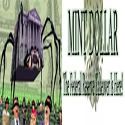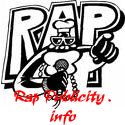1) Stop Bill C-15: Say No To Mandatory Jail Terms For Marijuana - SStephen Harper has introduced mandatory minimums for marijuana - previously known as Bill C-26, but now introduced as Bill C-15. Harper wants a mandatory minimum six months in jail for one plant, and one year for trafficking involving "organized crime", which is simply defined as three or more people - that could be you, your dealer, and the grower! Canadians know the drug war has failed, and 62% support the legalization of marijuana. Speak up and help defeat C-15!
Further information at SStephen Harper wants Canadians to spend billions implementing a failed and costly US prison system
2) HR 875 The food police, criminalizing organic farming and the backyard gardener, and violation of the 10th amendment - SThis bill is sitting in committee and I am not sure when it is going to hit the floor. One thing I do know is that very few of the Representatives have read it. As usual they will vote on this based on what someone else is saying. Urge your members to read the legislation and ask for opposition to this devastating legislation. Devastating for everyday folks but great for factory farming ops like Monsanto, ADM, Sodexo and Tyson to name a few.
"I have no doubt that this legislation was heavily influenced by lobbyists from huge food producers. This legislation is so broad based that technically someone with a little backyard garden could get fined and have their property siezed. It will effect anyone who produces food even if they do not sell but only consume it. It will literally put all independent farmers and food producers out of business due to the huge amounts of money it will take to conform to factory farming methods. If people choose to farm without industry standards such as chemical pesticides and fertilizers they will be subject to a vareity of harassment from this completely new agency that has never before existed. That's right, a whole new government agency is being created just to police food, for our own protection of course."
For further information and a discussion read the comments section for bodo"s post at Guerrilla News Network
3) Bair Says Insurance Fund Could Be Insolvent This Year - SFederal Deposit Insurance Corp. Chairman Sheila Bair said the fund it uses to protect customer deposits at U.S. banks could dry up amid a surge in bank failures, as she responded to an industry outcry against new fees approved by the agency. Without these assessments, the deposit insurance fund could become insolvent this year," Bair wrote in a March 2 letter to the industry. U.S. community banks plan to flood the FDIC with about 5,000 letters in protest of the fees, according to a trade group.
SA large number" of bank failures may occur through 2010 because of rapidly deteriorating economic conditions," Bair said in the letter. Without substantial amounts of additional assessment revenue in the near future, current projections indicate that the fund balance will approach zero or even become negative."
SThe FDIC last week approved a one-time emergency" fee and other assessment increases on the industry to rebuild a fund to repay customers for deposits of as much as $250,000 when a bank fails. The fees, opposed by the industry, may generate $27 billion this year after the fund fell to $18.9 billion in the fourth quarter from $34.6 billion in the previous period, the FDIC said. The fund, which lost $33.5 billion in 2008, was drained by 25 bank failures last year. Sixteen banks have failed so far this year, further straining the fund.
4) "Francisco's Money Speech" by Ayn Rand - SSo you think that money is the root of all evil?" said Francisco d'Anconia. Have you ever asked what is the root of money? Money is a tool of exchange, which can't exist unless there are goods produced and men able to produce them. Money is the material shape of the principle that men who wish to deal with one another must deal by trade and give value for value. Money is not the tool of the moochers, who claim your product by tears, or of the looters, who take it from you by force. Money is made possible only by the men who produce. Is this what you consider evil?
SWhen you accept money in payment for your effort, you do so only on the conviction that you will exchange it for the product of the effort of others. It is not the moochers or the looters who give value to money. Not an ocean of tears not all the guns in the world can transform those pieces of paper in your wallet into the bread you will need to survive tomorrow. Those pieces of paper, which should have been gold, are a token of honor--your claim upon the energy of the men who produce. Your wallet is your statement of hope that somewhere in the world around you there are men who will not default on that moral principle which is the root of money, Is this what you consider evil?
5) The Cute Cat Theory Talk at ETech - SIf you want to prevent your users from accessing online content, you"ve got four basic options. You can block keywords, block URLs, pollute your DNS or block IPs. It"s surprisingly hard to block keywords - you need to open and examine all the packets crossing your network. China does a bit of this, but mostly blocks keywords within URLs - it"s prohibitively expensive to examine every packet for an entire nation and check against a blocklist. URL blocking simply doesn"t work very well - it"s easy to rewrite a URL and access the same content. DNS blocking is very simple, but it tends to backfire - your smarter users simply switch towards using an unpolluted DNS and you have no way to control their behavior with this technique in the future. And so, most repressive governments block IPs, which limits access to banal as well as sensitive content.
SBut perhaps this isn"t stupidity on the part of nations. When Pakistan blocks YouTube, it limits traffic to the site. Google notices these sorts of things. Perhaps it"s coincidental that the video named by Pakistan has been removed from YouTube due to a terms of service violation - perhaps not. But while advocates try to raise the price of censorship for governments, smart governments are raising the price for noncompliance for Web 2.0 companies.
SMy colleagues at the Open Net Initiative began documenting net censorship a bit more than five years ago. At that point, Saudi Arabia and China were censoring widely. Now at least two dozen nations censor the net regularly, and more may be participating in Sevent-based filtering, blocking access to political sites before a key election, for instance. My fear, in the medium to long term, is that every nation that constrains freedom of the press will begin filtering the net, realizing that the Internet is where important press takes place these days.
Read More...
[Source: chycho.com - - Posted by FreeAutoBlogger]





















0 comments:
Post a Comment